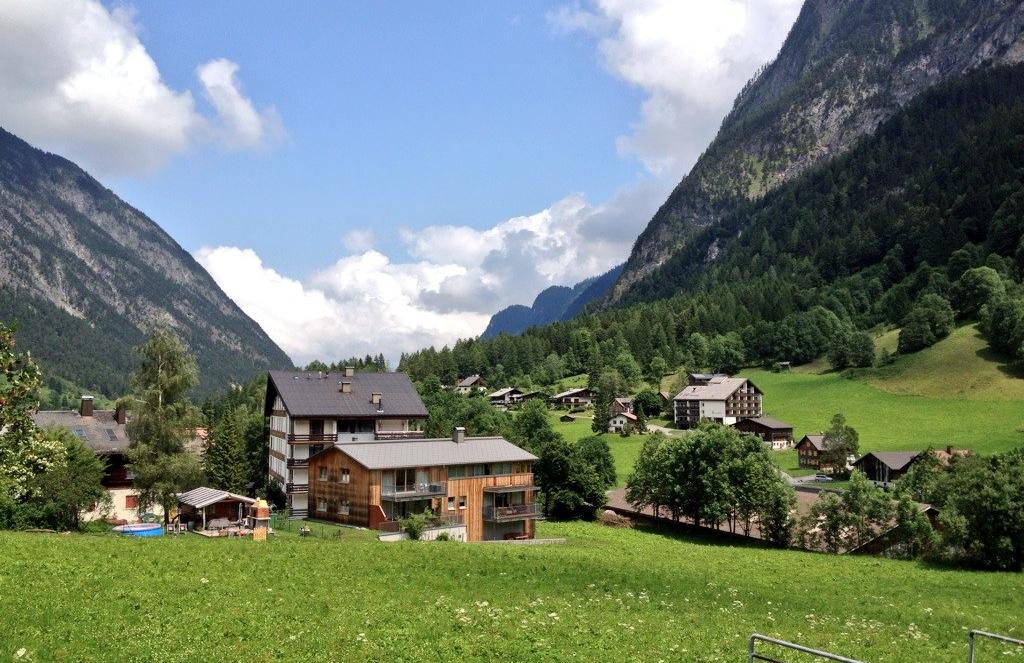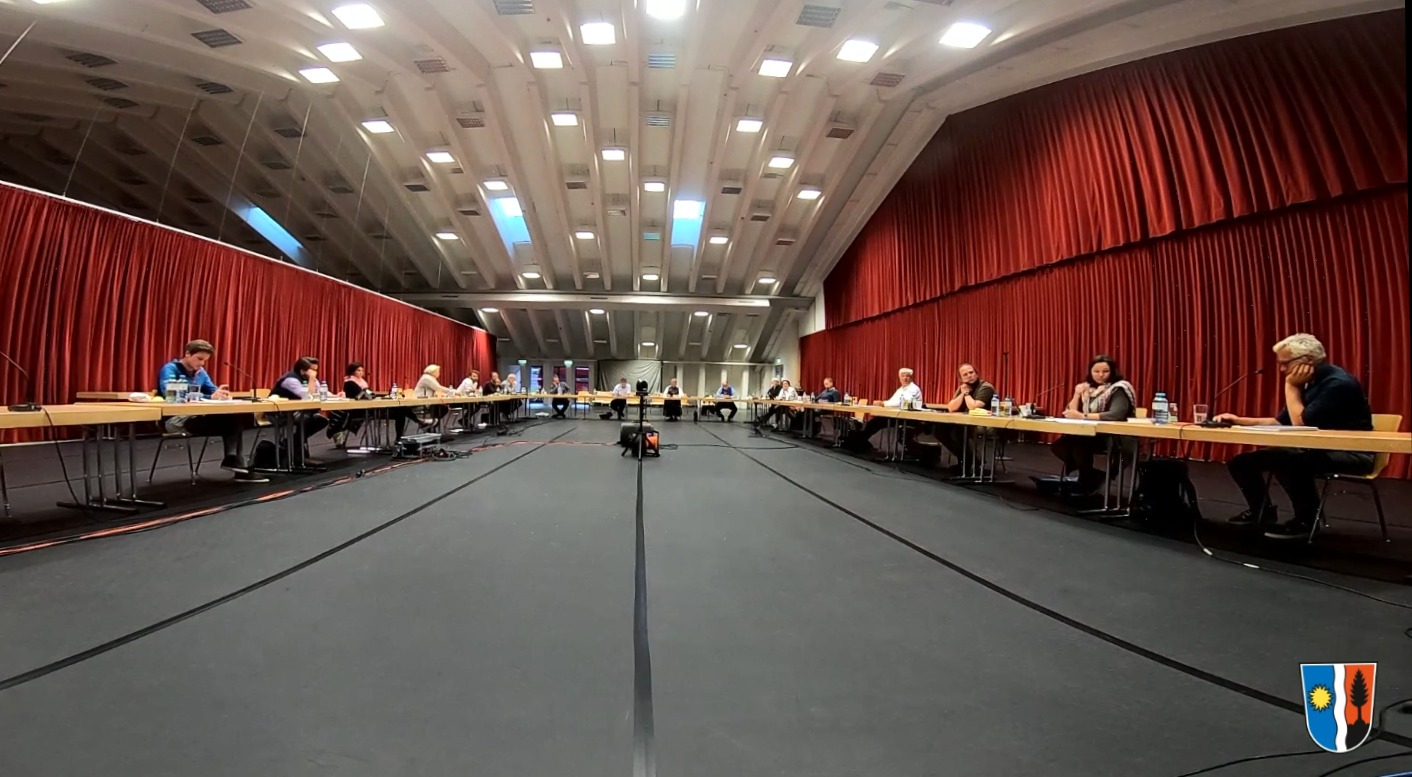Thessaloniki gets ready for its metro launch in November
The underground rapid transit lines have been under construction for almost two decades due to various project delays
 TheMayor.EU logo
TheMayor.EU logo 
The mayor of Brand in Vorarlberg said that growth is a priority for his municipality, Source: John Mason on Flickr, CC BY 2.0
The Mayor of Lech asked for support from his colleagues so that these villages can stay authentic
The Austrian Alpine village of Lech took drastic action against the gentrification in the region by banning the so-called “investor model” last week. Yesterday, the tourism communities of the "Experience Exchange Group" (ERFA) in Vorarlberg met to discuss whether more municipalities should join in and use the ban as a lever to influence federal policy change.
The mayor of Lech, Stefan Jochum, explained the investor model like this: a hotel operator builds a new building and then sells the apartments to financially strong investors. They, in turn, are very keen on pouring money into the Alpine Region of Vorarlberg, because Austria is a stable country and the Alps have enormous tourist potential, making it a solid investment.
If a developer constructs a complex with 15 to 20 buildings, with a capacity of 200 to 300 beds, this will not only forever change the landscape of one of these small alpine villages, but it will also create serious disparities in its economy.
This is born from the fact that the locals mainly offer small bed and breakfast accommodations, which are unable to compete with the large hotel chains.
Furthermore, most of the apartments are sold off to the aforementioned investors, and the people who end up buying them never visit the properties themselves. According to Mayor Jochum, this creates a ghost town situation, where these massive apartment complexes just sit empty waiting to be sold off to the next investor.
 Last week the municipal council decided to ban the 'investor model',
Last week the municipal council decided to ban the 'investor model',
Source: Municipality of Lech
During a community council meeting at the beginning of the month, he said: “The view of the many dark houses has been causing us great concern for many years. We have to face the truth: the investor models are out of control. Where there used to be lively restaurants and hotels, we now see empty and lifeless chalets with cold beds in many places without guests and employees”.
On the municipal level, the ban is not really a ban per se. It will entail modest changes to zoning regulations in the area and will add a committee from the local council in the approval process for building projects.
During the approval process, the most important thing the committee will be looking out for is whether the project is antithetical to the local economy, lifestyle and business traditions. The mayor of Lech expressed his strong opinion on the matter, saying: “We have to do everything we can to ensure that our villages remain our villages.”
During the ERFA meeting on Wednesday, local mayors discussed a possible solution to the problems posed by the ‘investor model’, however, different local leaders recognised different priorities for their own municipalities.
The mayor of Mittelberg, Andi Haid explained that it has been his longtime goal to stand against the selling off of his home town. At the same time, the mayor of Brand said that growth is a priority for his municipality, and the construction of a 500-bed complex would be impossible with local funding alone.
Stefan Strolz, the mayor of Warth had a balancing opinion, believing the decision should rest in the hands of each municipality. He added that in Warth there are two investor complexes that are currently very well managed, however, there are dozens of inquiries for further development and the municipality needs a more effective mechanism.
In the end, the ERFA reached an agreement, setting their sights on removing the ‘investment model’ from spatial planning laws. Currently, the group is in talks with the federal government of Austria.
If you want to keep up with how European cities and regions are changing, follow us on Facebook, Twitter and Instagram.

The underground rapid transit lines have been under construction for almost two decades due to various project delays

Now you can get your wine in Talence by paying directly in Bitcoin

That’s because the state has to spend money on updating the railway infrastructure rather than subsidizing the cost of the popular pass

Rethinking renewable energy sources for the urban landscape

The examples, compiled by Beyond Fossil Fuels, can inform and inspire communities and entrepreneurs that still feel trepidation at the prospect of energy transition

Now you can get your wine in Talence by paying directly in Bitcoin

The 10th European Conference on Sustainable Cities and Towns (ESCT) sets the stage for stronger cooperation between the EU, national and local level to fast track Europe's transition to climate neutrality.

At least, that’s the promise made by the mayor of Paris, Anne Hidalgo

The underground rapid transit lines have been under construction for almost two decades due to various project delays

At least, that’s the promise made by the mayor of Paris, Anne Hidalgo

Hostal de Pinós is located in the geographical centre of the autonomous region

Despite its church-y name, the district has long been known as the hangout spot for the artsy crowds

Urban dwellers across the EU are having a say in making their surroundings friendlier to people and the environment.

Forests in the EU can help green the European construction industry and bolster a continent-wide push for architectural improvements.

Apply by 10 November and do your part for the transformation of European public spaces

An interview with the Mayor of a Polish city that seeks to reinvent itself

An interview with the newly elected ICLEI President and Mayor of Malmö

A conversation with the Mayor of Lisbon about the spirit and dimensions of innovation present in the Portuguese capital














